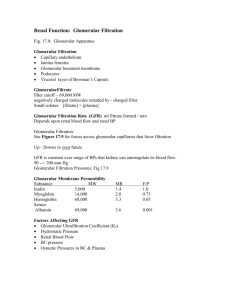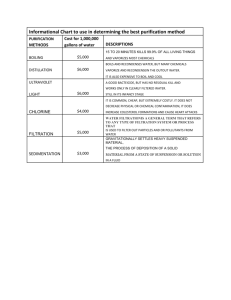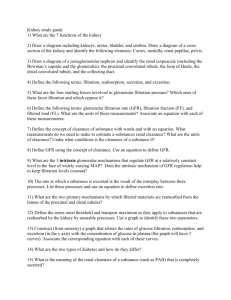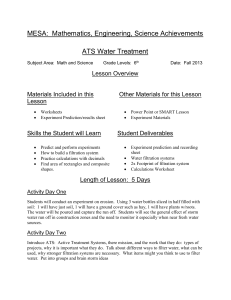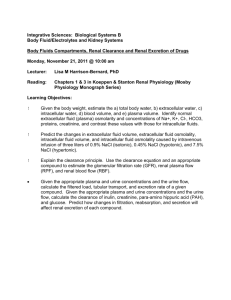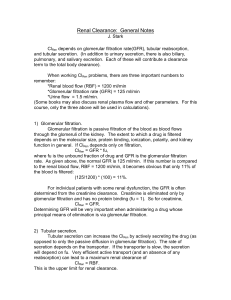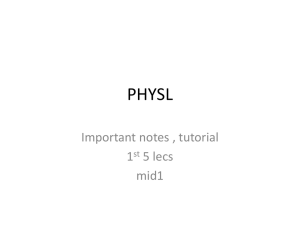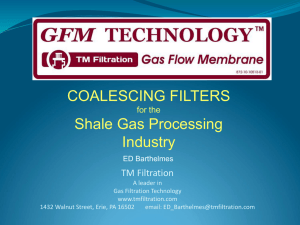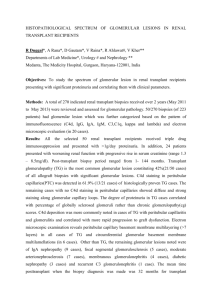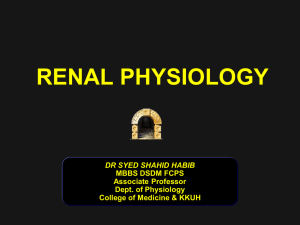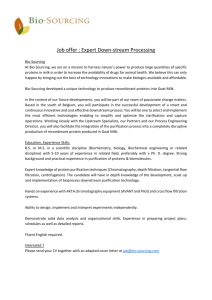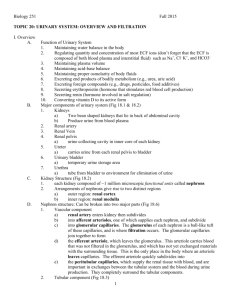Endocrine System: Overview
advertisement
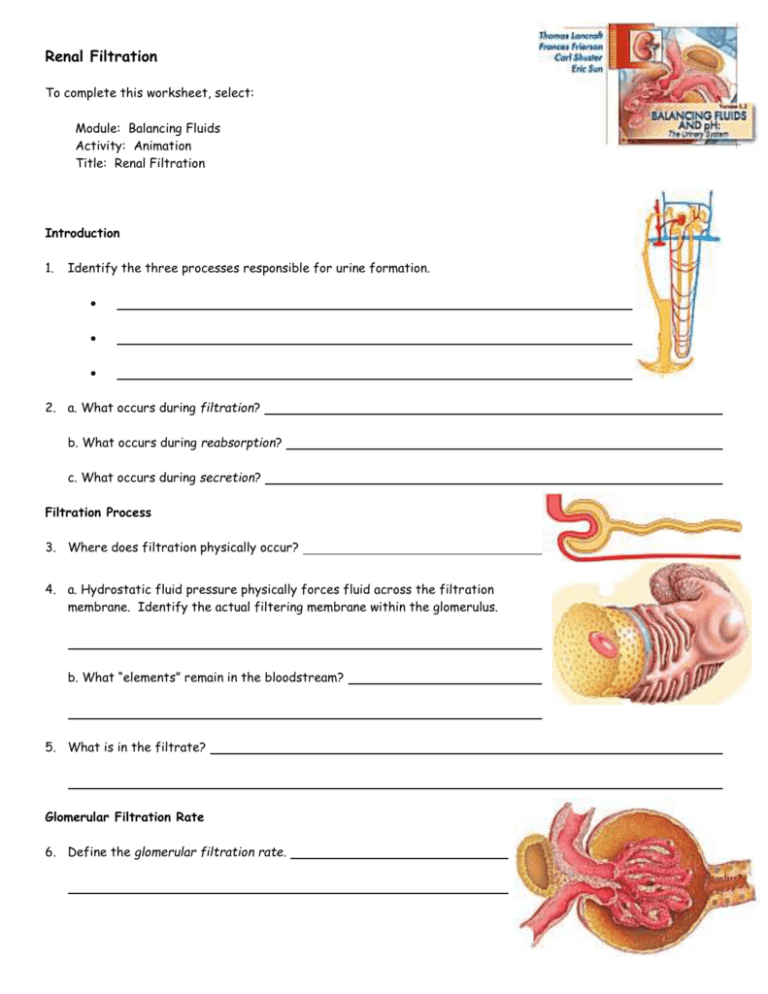
Renal Filtration To complete this worksheet, select: Module: Balancing Fluids Activity: Animation Title: Renal Filtration Introduction 1. Identify the three processes responsible for urine formation. 2. a. What occurs during filtration? b. What occurs during reabsorption? c. What occurs during secretion? Filtration Process 3. Where does filtration physically occur? 4. a. Hydrostatic fluid pressure physically forces fluid across the filtration membrane. Identify the actual filtering membrane within the glomerulus. b. What “elements” remain in the bloodstream? 5. What is in the filtrate? Glomerular Filtration Rate 6. Define the glomerular filtration rate. 7 Describe each of the three pressures that determine filtrate movement. a. Glomerular blood hydrostatic pressure (GBHP) b. Capsular hydrostatic pressure (CHP) c. Blood colloidal osmotic pressure (BCOP) - 8. Define the Net Filtration Pressure (NFP). 9. Why must normal glomerular filtration rates be normal? 10. a. Hold your computer cursor over the “up” arrow. Describe the consequences if glomerular pressure is too high. b. Hold your computer cursor over the “down” arrow. Describe the consequences if glomerular pressure is too low. Regulation of Glomerular Filtration Rate 11. What are the two main ways glomerular filtration rate can be adjusted? 12. a. What is renal autoregulation? b. Two autoregulatory mechanisms maintain normal GFR. Describe how each of them can increase or decrease GFR. i. myogenic mechanism - ii. tubuloglomerular feedback - 13. a. Compare sympathetic stimulation with autoregulation of glomerular filtration while at rest. b. When is sympathetic stimulation of glomerular filtration important? 14. Describe sympathetic stimulation affects on the following with an extreme drop in blood pressure. a. afferent arterioles b. juxtaglomerular cells c. What is the net result of these two affects and how do they maintain homeostasis? 15. With dropping blood pressure, the walls of the renal arterioles collapse causing the juxtaglomerular cells to produce rennin, which in turn stimulates angiotensin II secretion. What is the affect of angiotensin II? 16. With a sudden increase in blood pressure, the heart atria secrete ANP. What is its affect on glomerular filtration?
